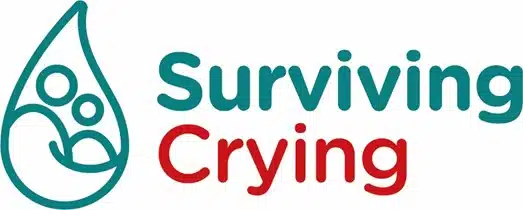18th November 2022
We are delighted to share this Voices blog from Jayne Brown, Professor of Health Care Professions, Nottingham Trent University, Institute of Health and Allied Professions.
Looking forward to parenthood is part and parcel of pregnancy, I know that I had images of walks and coffee mornings with other Mums, sharing stories and tips while we pushed our contented babies across the park. But life doesn’t always work out as you would expect and about 20% of babies cry in a way that parents feel is excessive or unsoothable in the first 4 to 5 months of life. And this can cause real problems. One parent told us:
I think I felt quite frustrated…. I had expected that when you pick them up and try to comfort them, you expect that to work and when it didn’t you don’t really know what to do with yourself.
In the literature, this excessive crying has been put down to colic and other organic causes such as babies lacking ‘good’ bacteria in their gut, baby picking up on parental stress and anxiety, or that it is solely part of normal development. Although there is no clear picture, a great deal of research has shown that babies who cry a lot, and fit the colic picture, are in good health.
Excessive crying may be a problem that is focused around the first months of life, but it can have wider implications and longer-term consequences. These include premature termination of breastfeeding, over feeding, presumption or not addressing physical causes such as lactose intolerance, parental distress, anxiety and depression, poor parent and child bonding, problems with long-term child development, and in some cases infant abuse. All of these can also lead to a potential increase in the use of NHS and other services.
While there are no definitive answers as to the causes of this early excessive crying, Professor Ian St James-Roberts, psychologist and expert in infant crying, decided to turn things on their head and began to focus on the parent. He and I have been working together for almost 10 years, exploring ways in which we could support parents to cope with excessive crying. The way I like to explain it is this: our work is showing parents that there is light at the end of the crying tunnel, and we are here to help them identify their own resources, and how to use them to get to the end of that tunnel.
Over several research projects, with the help of parents and health visitors, we have developed an intervention to support parents. This consists of a website and a booklet with evidence-based information, techniques and parent stories. For those who need more support, we have one-to-one sessions using a CBT approach to supporting parents. These sessions, delivered in the initial study by a clinical psychologist, have more recently been successfully delivered by Surviving Crying trained health visitors. As one parent told us:
I’m just so grateful to you for starting (Surviving Crying) with the health visitors, for putting me on the study and for Jan (Surviving Crying Health Visitor), for all her work. I’m a different Mum because of the study. I’m still here, which is one thing which some days I wasn’t sure I would be…. but again, I can’t tell you how helpful it was and how it helped me bond, not just with the baby, but with my toddler as well.
And the work continues. We now must show that Surviving Crying can be used effectively in normal NHS practice, and we are doing this currently. Our present study is funded by the National Institute of Health Research (NIHR) and supported by the Institute of Health Visiting. This study is about pushing the boundaries of health visiting practice and using Surviving Crying clinically, through our locally-trained Surviving Crying health visitors. The team and I are delighted to currently be working with parents and health visitors in Sheffield Children’s NHS Foundation Trust, London Borough of Newham, Nottinghamshire Healthcare NHS Foundation Trust, and South Warwickshire NHS Foundation Trust. If you work in any of these areas and wish to refer a parent who feels they have an excessively crying baby to the study, then please contact your local research team, or email [email protected]. When the pilot phase of this study is complete in May 2023, we will be extending the study to include Barnsley Council, Rotherham Doncaster and South Humber (RDaSH) NHS Foundation Trust, Heywood, Middleton and Rochdale Health Visiting Service, and Midlands Partnership NHS Foundation Trust.
I know from talking to health visiting colleagues who have worked on our studies, how good it is to have something concrete to offer parents; and I know from parents, like the one above, how valuable they have found the input from Surviving Crying trained health visitors. We hope through our work that the Surviving Crying approach will become available across the NHS to all those who need it.
Jayne Brown, Professor of Health Care Professions, Nottingham Trent University, Institute of Health and Allied Professions
This study is funded by the National Institute for Health Research (NIHR), Health Technology Assessment programme (HTA) (Unique award identifier 131341).
The views expressed are those of the authors and not necessarily those of the NIHR or the Department of Health and Social Care.


